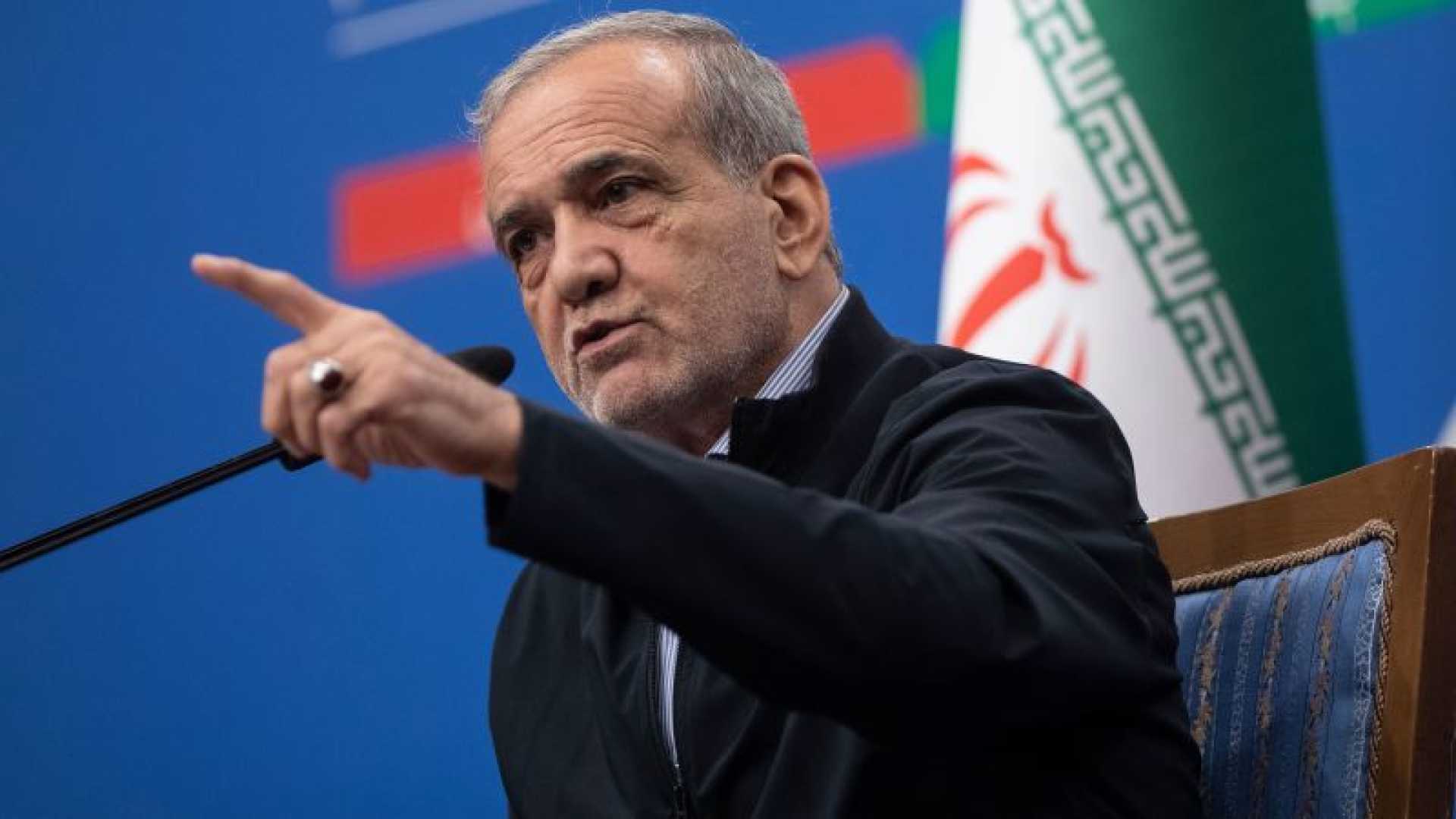World
Iran Rejects Direct Talks with U.S. Amid Nuclear Tensions

DUBAI, United Arab Emirates (AP) — Iranian President Masoud Pezeshkian announced on Sunday that the Islamic Republic has officially rejected direct negotiations with the United States regarding its advancing nuclear program. This statement marks Iran’s first formal response to a letter sent by U.S. President Donald Trump to Tehran’s Supreme Leader Ayatollah Ali Khamenei.
Pezeshkian indicated that the nation delivered its response through intermediaries in Oman but left the door open for indirect negotiations with Washington. However, the prospect of such talks appears unlikely given the stalled progress since Trump withdrew the U.S. from the nuclear agreement with world powers in 2018. The withdrawal has escalated regional tensions and prompted clashes both at sea and on land.
“We don’t avoid talks; it’s the breach of promises that has caused issues for us so far,” Pezeshkian stated during a Cabinet meeting, broadcast on television. “They must prove that they can build trust.”
The U.S. administration has long stated its position that Iran cannot be permitted to acquire a nuclear weapon. In February, the International Atomic Energy Agency (IAEA) reported that Iran has accelerated its production of near weapons-grade uranium, further complicating the situation.
Trump’s letter to Khamenei, which arrived on March 12, emphasized the need for negotiations while hinting at potential military action if Tehran refuses. On a flight from Florida to Washington, Trump remarked, “We’ll see if we can get something done… if not, it’s going to be a bad situation.”
Conflict between Iran and the U.S. has intensified over the past several years, most recently involving airstrikes targeting Iranian-backed groups in Yemen amid heightened tensions following the Israel–Hamas conflict. Each side has issued threats, with Iranian parliamentary speaker Mohammad Bagher Qalibaf warning that any violation of Iran’s sovereignty would result in severe consequences for U.S. military bases in the region.
Amid these deepening hostilities, Pezeshkian’s statements signal a notable shift in Iran’s diplomatic posture since he took office, advocating for more engagement with the West. However, following Khamenei’s sharp criticism of Trump, Pezeshkian has hardened his approach towards the U.S.
“The Americans themselves know how vulnerable they are,” Qalibaf declared last week, underlining the precarious state of U.S.-Iran relations. U.S. forces have continued to target what they describe as Iranian proxies in the region, while Tehran insists its nuclear ambitions are purely for peaceful purposes.
In a broader context, the ongoing geopolitical tensions highlight the struggles surrounding the Iran nuclear program and the complexities inherent in U.S.-Iran relations. Both countries remain at an impasse, with uncertain prospects for future dialogue, as the situation continues to evolve.












